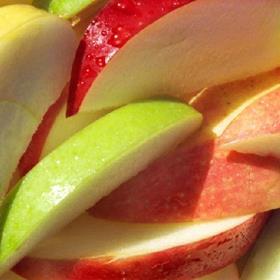
The Daily Mail has carried out a 'myth-busting' exercise that it claims exposes the lack of freshness in a number of value-added pre-prepared fruit and vegetable products sold in leading supermarkets.
Pre-prepared fruit and vegetables are estimated to account for as much as £1 billion of the £16bn fruit and veg market, and according to a Mintel survey, every week one in five adults purchases ready-to-eat fruit portions, with a similar number buying ready-to-cook vegetables, such as sliced carrots, chopped onions and pre-prepared stir-fry packs, and that number doubles when it comes to bagged or prepared salads.
The national newspaper posed the question: 'Are these products as virtuous as billed? And do consumers really know what’s happened to them from field to fork? Sure, the packets generally state where the items originated — anyone can see the peas are from 4,000 miles away in Kenya, the rocket from Italy and the beans from Tanzania.
'Use-by dates are also there, plain to see — some extending a full six days beyond when they first appear on the shelves. Because first they will have been picked, then transported to a processing hub, where they will have been washed, prepared, packed and chilled. From there, the next stop would be the nearest airport to be air-freighted to Britain.
'But beyond the environmental effects of all those air miles, what impact does the way in which this produce is processed, packed and stored have on the nutritional value of these supposedly ‘fresh’ and ‘healthy’ foods?'
The Daily Mail investigation team purchased 20 items of ready-to-eat fruit, ready-to-cook vegetables and bagged salads, and then had them tested at an independent laboratory to precisely measure their levels of vitamin C.
The products came from Waitrose, Marks & Spencer, Sainsbury’s and Tesco, and all were tested within their ‘best before’ or ‘use by’ date.
The laboratory results were then compared against what the paper calls the ‘textbook’ amount typically found in raw fruit and vegetables sold in the UK.
It claims that its tests showed that levels in the prepared packs of fruit and vegetables were, mostly, 'far lower than what might be found in fresh, unprepared produce.'
A pack of baby spinach from Waitrose had just 2.8mg of vitamin C per 100g — less than 10 per cent of the amount recorded as standard for baby spinach in the latest edition of McCance and Widdowson’s The Composition Of Foods, the authoritative record of nutrient data for the most commonly consumed foods in the UK, the Mail claimed.
A bag of M&S rocket, meanwhile, had 84 per cent less vitamin C than the textbook level, while a pack of the store’s runner beans was similarly depleted.
According to the Mail, the amount of vitamin C in sliced apple snack packs, from both Tesco and Sainsbury’s, came in at less than 1mg — too low to accurately measure — and way down on the textbook levels of 6mg.
Responding to the investigation, Tesco told the Mail that while the products had not been treated with enzymes, the sliced apples are dipped in an antioxidant, which prevents them from browning and that, along with the stir-fry ingredients, they had also been washed in chlorinated water.
It added that the pineapple had been washed in Citrox, an organic, naturally derived acid biocide.
A Sainsbury’s spokesperson said: ‘When fruit and vegetables intended for pre-prepared or pre-washed products are harvested, we sometimes use ingredients or processes to ensure the product reaches our customers in the condition they would expect, while ensuring no significant change in nutritional content.’
And a Waitrose spokesperson said customer safety was its 'top priority', and that the products had been washed in water containing a very low level of chlorine before being packaged into their final packs without further treatments.



